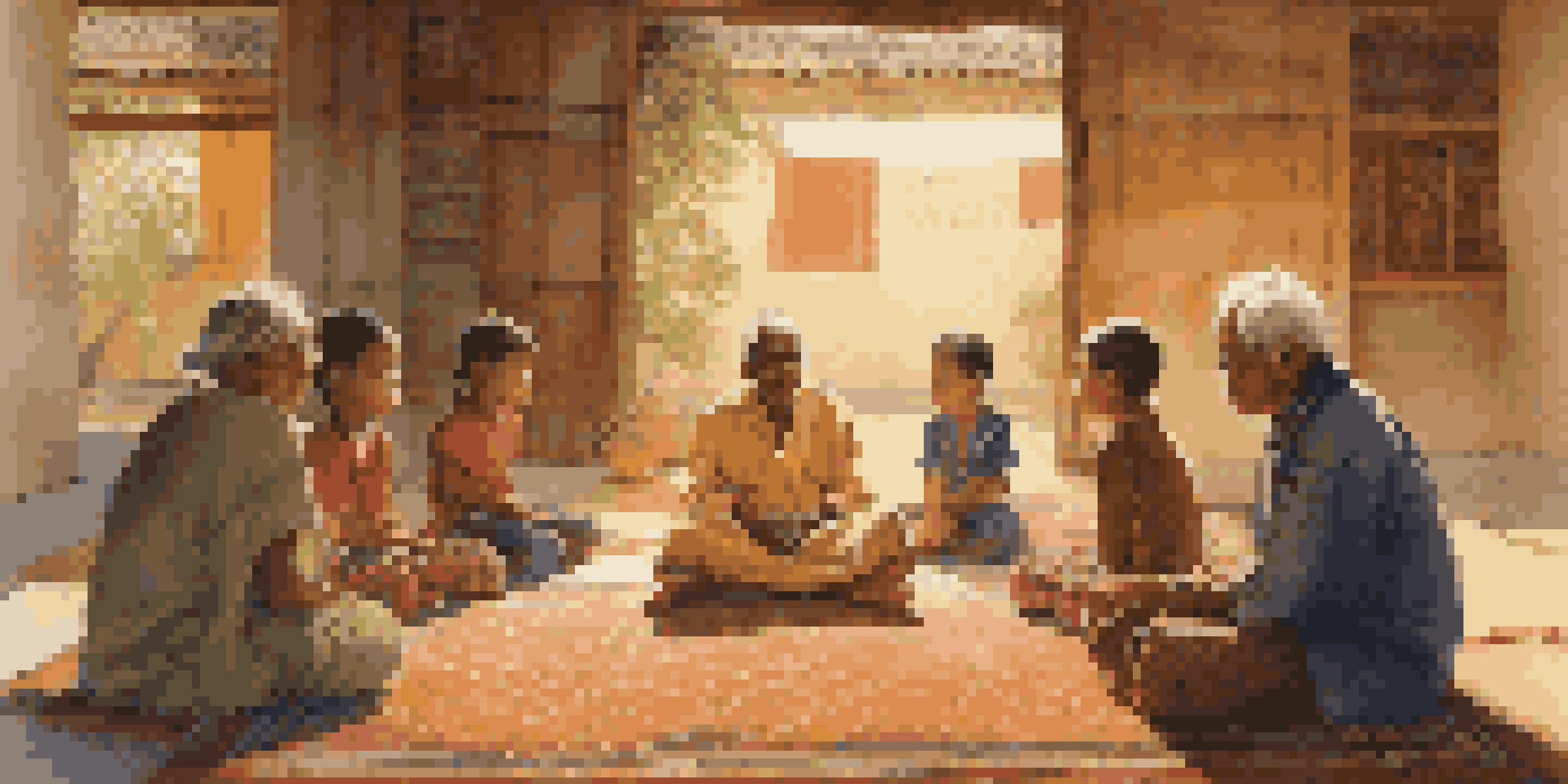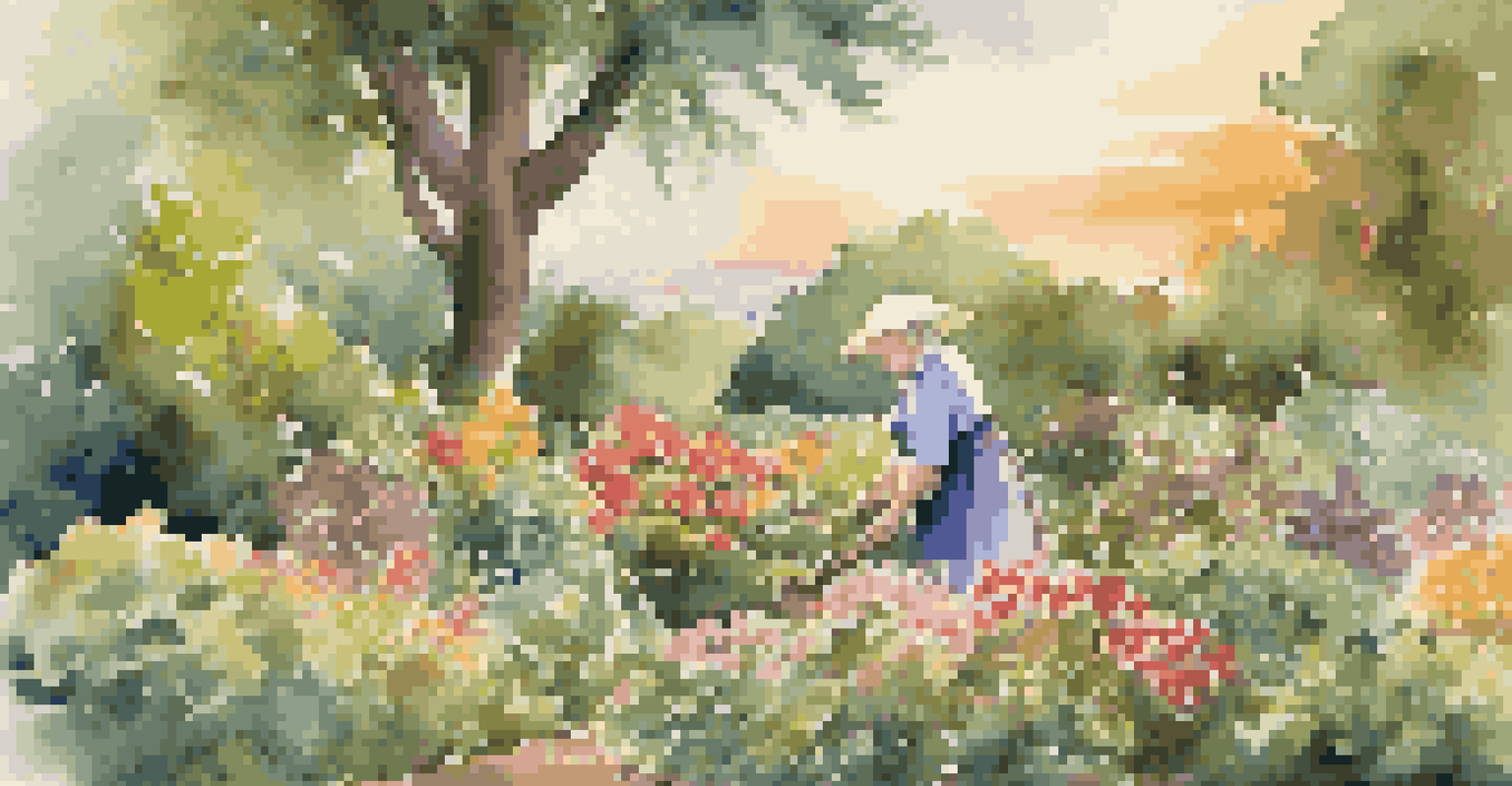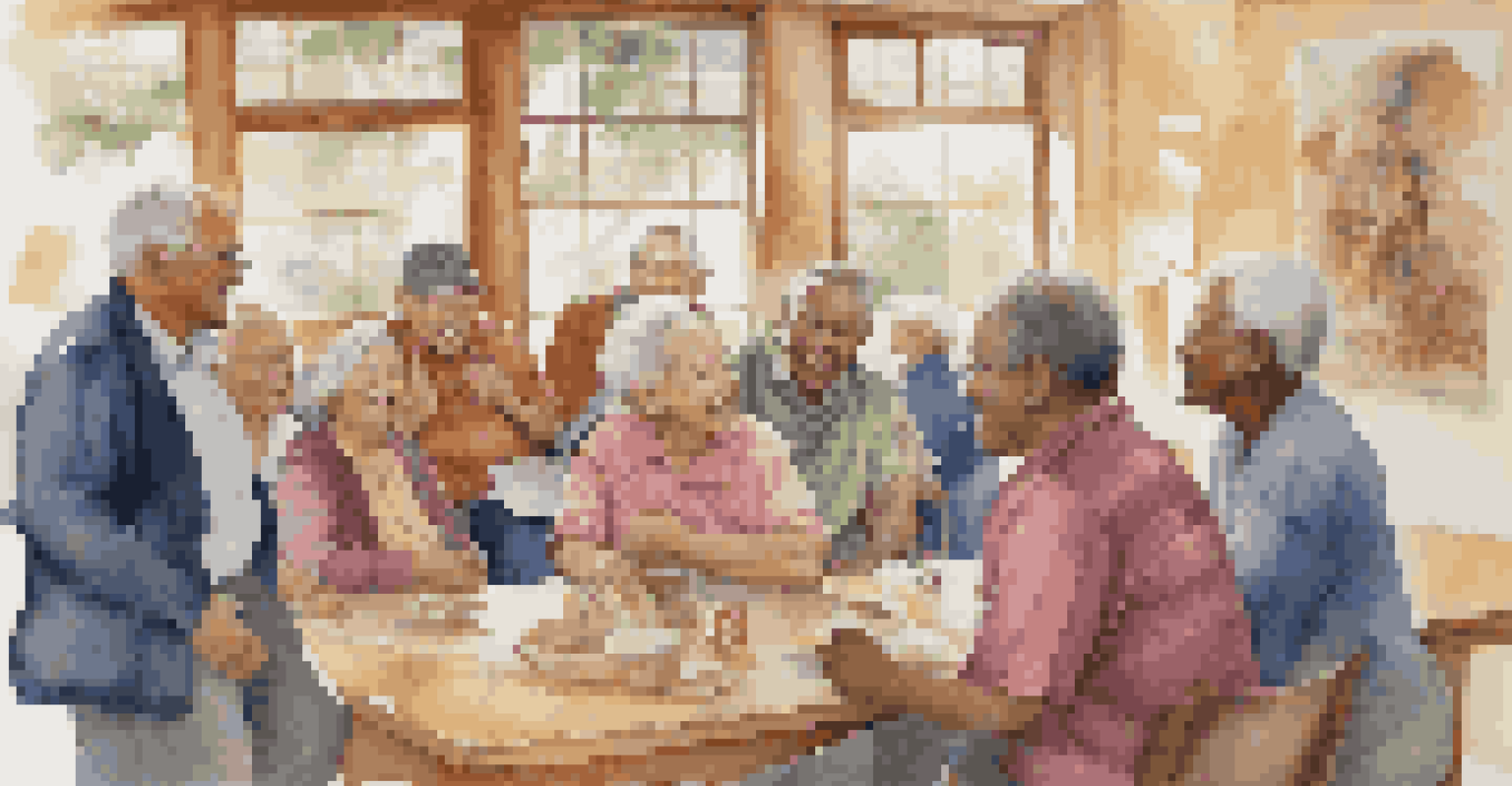Understanding the Role of Elders in Various Cultures

The Wisdom of Elders: A Universal Appreciation
Throughout history, elders have been revered for their wisdom and life experience. Many cultures view them as custodians of knowledge, passing down traditions and values to younger generations. This reverence often translates into a leadership role within families and communities, where their opinions hold significant weight.
The elders are the wisdom of the community, and their stories are the pathways to understanding our past and guiding our future.
For instance, in many Indigenous cultures, elders are often seen as the heart of the community. Their stories and teachings are not just personal anecdotes but vital lessons that shape the identity of the group. In this way, elders serve as living libraries, preserving the past while guiding future generations.
Moreover, the respect afforded to elders can vary greatly between cultures. In some societies, such as in East Asian cultures, there's a strong emphasis on filial piety, where honoring and caring for elders is considered a moral duty. This cultural norm reinforces the idea that the wisdom of older generations is essential for societal harmony.
Elders in Indigenous Cultures: Guardians of Tradition
In many Indigenous cultures, elders play a crucial role in preserving history and cultural practices. They often lead ceremonies, share oral histories, and educate younger members about their heritage. This connection to tradition fosters a sense of identity and belonging within the community.

For example, in Native American cultures, elders are often referred to as 'grandparents' and are central to storytelling sessions. They pass down legends and teachings that instill moral values and social norms. These stories not only entertain but also serve as vital lessons for living harmoniously with nature and each other.
Elders as Cultural Knowledge Keepers
Elders serve as vital custodians of cultural traditions and wisdom, shaping identities and guiding younger generations.
Additionally, elders in these communities often act as mediators in conflicts, using their experience to guide resolution processes. This role emphasizes the importance of wisdom in maintaining community cohesion and ensuring that future generations understand the significance of their cultural roots.
The Role of Elders in Asian Cultures: Wisdom and Authority
In various Asian cultures, particularly in countries like China, Japan, and Korea, elders are regarded as authorities within family structures. They are often consulted on important decisions, reflecting a deep-rooted respect for their life experiences. This cultural norm highlights the perceived value of age and wisdom.
A society grows great when old men plant trees whose shade they know they shall never sit in.
For instance, in Confucianism, which heavily influences East Asian societies, filial piety is a core principle. This philosophy emphasizes respect for one’s parents and ancestors, establishing a framework where the opinions of elders are highly regarded. It shapes family dynamics, ensuring that the wisdom of the elderly is integrated into familial decision-making.
Moreover, the role of elders extends beyond the family unit. In many Asian communities, they are also key figures in local governance and social organizations, often acting as advisors or leaders. Their insights are invaluable, helping to navigate both traditional and modern societal challenges.
Elders in African Cultures: Community Leaders and Healers
In many African cultures, elders hold a unique position as both community leaders and spiritual guides. They are often seen as the link between the living and the ancestral spirits, possessing knowledge that is vital for communal well-being. This spiritual connection reinforces their authority and respect within the community.
For example, in many West African societies, elders are responsible for conflict resolution and decision-making within their villages. Their experience and wisdom are essential in navigating disputes, ensuring that resolutions are fair and rooted in tradition. This role not only cements their status but also fosters unity among community members.
Intergenerational Relationships Matter
Fostering connections between elders and younger generations enriches communities and ensures the transmission of valuable experiences.
Additionally, elders often serve as healers, using traditional medicine and knowledge passed down through generations. Their understanding of herbal remedies and spiritual practices is integral to community health, illustrating how their roles encompass both leadership and care.
Elders in Western Cultures: Challenging Stereotypes
In Western cultures, the perception of elders has evolved, with a growing recognition of their value beyond mere caretaking roles. While ageism can lead to stereotypes that portray older adults as frail or out of touch, many elders are vibrant contributors to society. They continue to engage in various fields, from the arts to technology.
For instance, many older adults are actively involved in mentorship programs, sharing their expertise and life lessons with younger generations. This engagement not only benefits the mentees but also fosters a sense of purpose for the elders themselves, challenging the notion that aging equates to a decline in relevance.
Furthermore, initiatives aimed at incorporating elders into community decision-making processes are increasingly common. This shift highlights a growing appreciation for their insights and experiences, emphasizing that the wisdom of elders can guide societal progress in meaningful ways.
The Impact of Globalization on Elder Roles
As globalization continues to shape societies, the traditional roles of elders are also evolving. With increased mobility and cultural exchange, younger generations may find themselves distanced from the customs and practices that honor elder wisdom. This shift can lead to challenges, such as diminished respect for traditional knowledge.
For example, as urbanization rises, many young people move away from their rural homes, where elders often play a pivotal role in community life. This migration can disrupt the transmission of cultural practices and values, leaving gaps in knowledge that can be difficult to bridge.
Globalization Challenges Elder Roles
While globalization can diminish respect for elder wisdom, it also opens avenues for sharing their knowledge on a broader scale.
However, globalization also presents opportunities for elders to share their wisdom on a larger scale. Through technology and social media, older adults can connect with diverse audiences, preserving their cultural narratives while educating younger generations worldwide about their traditions and experiences.
The Importance of Intergenerational Relationships
Fostering intergenerational relationships is essential for maintaining the relevance of elders in society. These connections provide a platform for sharing wisdom, skills, and experiences, ultimately benefiting both the young and the old. When generations come together, they create a richer community fabric.
For instance, community programs that encourage interactions between young people and elders can facilitate learning opportunities. Activities such as storytelling, gardening, or shared meals not only enrich the lives of participants but also cultivate respect and understanding across age groups.

Moreover, these relationships can combat loneliness and isolation often felt by elders. Engaging with younger generations helps them feel valued and connected, reinforcing their important role in society while ensuring that their wisdom continues to resonate.
Conclusion: Embracing the Role of Elders in Our Lives
Understanding the role of elders in various cultures is crucial for appreciating the rich tapestry of human experience. Their contributions to society, whether through storytelling, leadership, or healing, remind us of the importance of wisdom in our fast-paced world. By valuing our elders, we honor our past while nurturing future generations.
As we embrace diversity and globalization, it is essential to uphold the significance of elder wisdom. By creating spaces for intergenerational dialogue and learning, we can bridge the gap between ages, fostering mutual respect and understanding. This approach not only enriches our communities but also empowers elders to continue sharing their invaluable insights.
In a world that often prioritizes youth, let us not forget the wisdom that comes with age. As we celebrate the roles of elders across cultures, we can cultivate a society that honors and learns from every generation, ensuring that the knowledge and experiences of our elders are cherished and passed down.